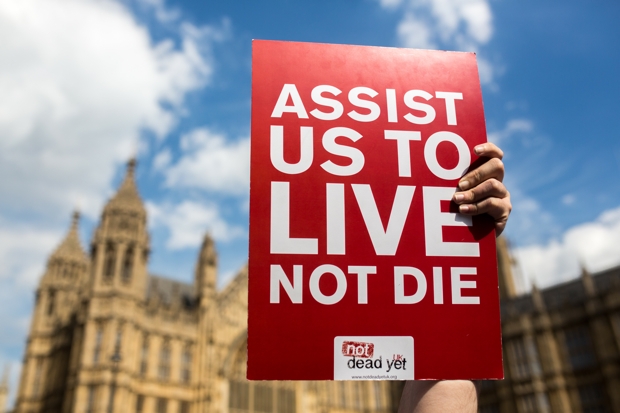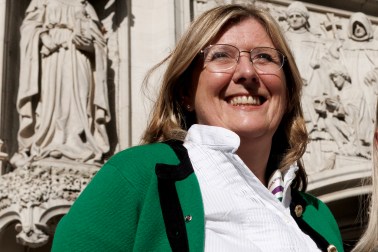The best speeches on the Assisted Dying Bill today were intelligent and sensitive – but not terribly new. The arguments were more or less the same as those in every debate on euthanasia for the last 80 years. Free choice vs concerns about the threat to public safety. So it was in 1936 and in 1969; so it was in the House of Lords with the Joffe Bill in 2006, and the amendment to the Coroners and Justice Bill in 2009, and in the Scottish Parliament earlier this year. Each time parliamentarians have voted to defend the vulnerable. They did so today by 330 votes to 118.
Stewart Jackson (Con, Peterborough) said that this is a ‘once in a generation’ result, while Iain Wright (Lab, Hartlepool) tweeted: ‘The scale of the vote…means it’s unlikely to come back for years’. That doesn’t mean assisted suicide campaigners will give up – but this result does feel more decisive than any previous one, for two reasons.
First, attitudes to disability have changed. The stories of how disabled people were treated forty years ago are as shocking as the stories of the ‘No Irish, No Blacks, No Dogs’ signs landlords used to put up. Tanni Grey-Thompson, the Paralympic athlete and crossbench peer, has written of her schooldays in which, thanks to her disability, she was only able to attend her school secretly; when the inspectors came, she had to be hidden in a cupboard. It would be seriously naïve to think that prejudice has disappeared, but we have come a long way. The major disabilities groups have been among the most persuasive voices arguing against the Bill.
Next, the doctors. As Nick Kemp’s history of the British euthanasia movement shows, medics have often made influential statements against changing the law. But Kemp also includes a thought-provoking statistic. In 1965, 1000 doctors were polled on whether they would administer euthanasia if it was legal: 36pc said yes. When, last year, 1005 GPs were asked if they would participate in assisted suicide, only 14pc said they would. And carrying out euthanasia – i.e. administering death – is an even heavier responsibility than (as in assisted suicide) providing the means to do it.
Something has changed over the decades. Perhaps the impact of palliative care – and of its pioneering figure Cicely Saunders, with her philosophy of ‘Last days are not lost days’ – has shifted attitudes, inside and outside the medical profession. Even those who spoke in favour of the Bill were insistent on the need for better palliative care. But today, MPs seem to have decided that you cannot really support people at the end of their lives while surrounding them with exit signs.






Comments